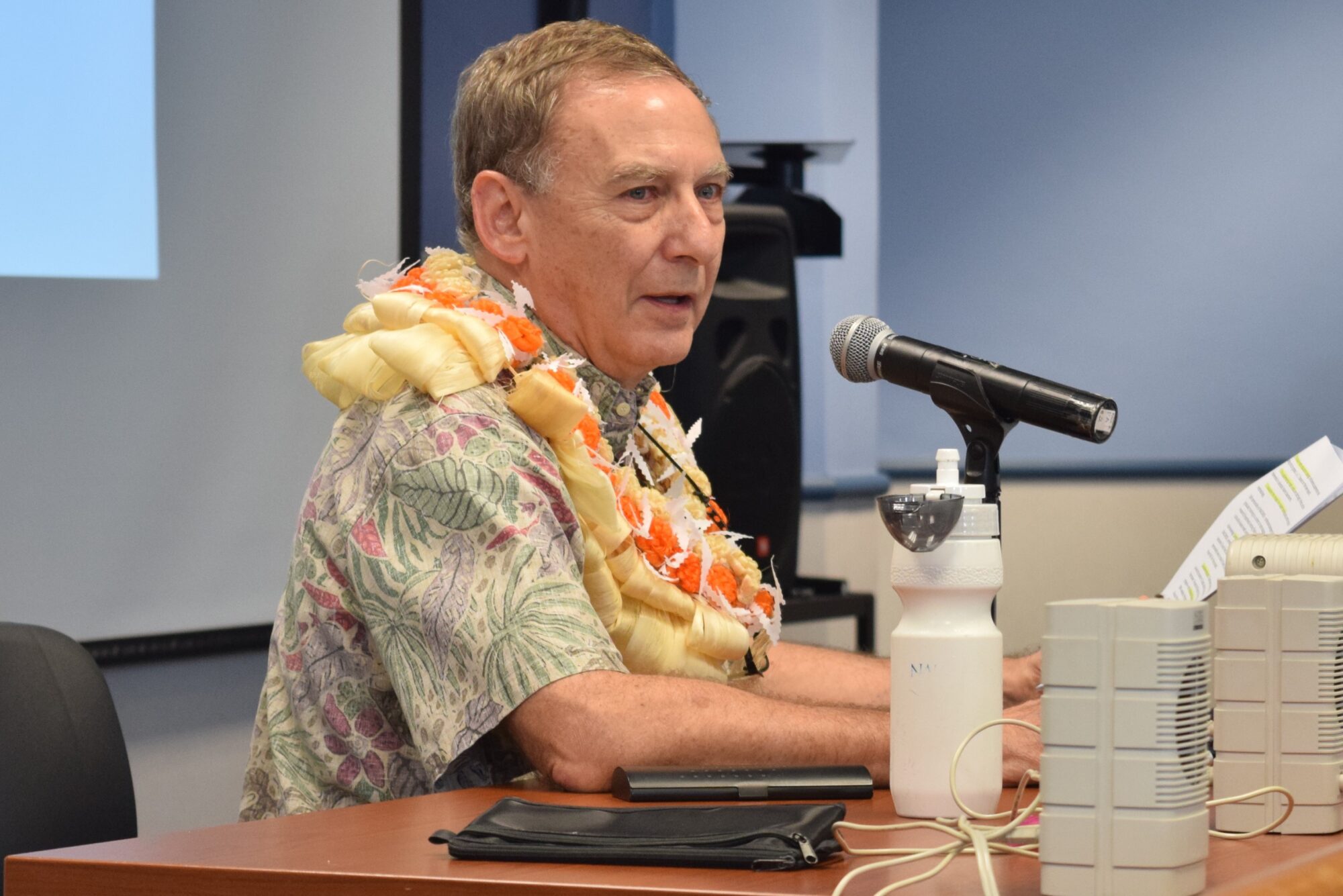The University of Guam’s School of Education, in partnership with the Chamorro Studies program, held their sixth seminar in the “Around the Latte Stone…” series on Wednesday, March 2. The seminar explained the process and results of the six-year research project titled, “Math and Culture in Micronesia—Integrating Societal Experiences” (MACIMISE).
The objective of MACIMISE was to test the hypothesis that students in American-affiliated Pacific Island (AAPI) classrooms would perform better in math classes when taught culturally-based math practices with their regular curriculum. The research was grounded in ethnomathematics, the study between mathematics and culture.
The seminar was conducted by Don Rubinstein, Ph.D., professor of anthropology and Micronesian Studies at the Micronesian Area Research Center. Rubinstein began as a research investigator for the project in 2010, and took over as project director in 2014.
Rubinstein described the project as having a “split personality.” On one hand, it facilitated professional development, and on the other hand was the research itself.
Twenty-two math educators, referred to as “The Macimisers,” were selected for the project. By the end of the project, the AAPI gained five new Ph.D. educational professionals, and the remaining educators had completed their masters.
“In that sense, the project’s contribution to capacity building and professional development was really significant,” Rubinstein said.
For the research aspect, the results were considered inconclusive. However, improvements in math scores were seen in grades one, four, and seven.
The final evaluation report addressed capacity building, successfully reported research methods, and evidence that the curriculum incorporated the use of mathematics and contributed to the mastery of mathematical concepts. The research team concluded that the units were in need of more work.
“All Macimisers expressed the belief that using culture was an important aspect of teaching math,” Rubinstein reported.
The project consisted of five phases: training P1 math educators, conducting cultural research, developing culturally based math curriculum, piloting and then refining these units, and evaluating the impact of student learning.
The research was funded by the National Science Foundation (NSF) due to the widespread concern of low math scores in AAPI schools.
For more information, visit the website at macimise.prel.org.

